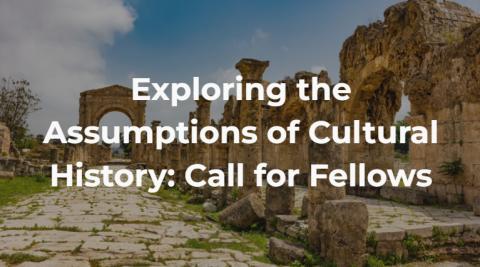The Future of the Past Lab and the Center for Premodern Studies at the University of Minnesota, Twin Cities are excited to announce a three-year series of visiting fellowships titled “Exploring the Assumptions of Cultural History.”
The lenses of Western modernity – e.g., capitalism, Christianity, democracy, empirical science – surreptitiously shape the study of past cultures in ways that disregard their own claims about their world in favor of those that align with traditions of the Euro-American academy. The product of this influence is a colonialist narrative that presents past cultures as flawed or inconsistent (because they fail to meet modern criteria) and modern (usually Western) cultures as the resolution of these inconsistencies. Exploring the Assumptions of Cultural History is a three-year project sponsored by the Future of the Past Lab and the Center for Premodern Studies at the University of Minnesota, Twin Cities that seeks to interrogate the influence of Western assumptions in the study of cultural history and to imagine ways forward. The series will feature ten, week-long visiting fellowships grouped around three main themes: the transmission of evidence (2024-5), the role of comparative work (2025-6), and the influence of uniquely modern ontological premises (2026-7). In the Spring of the last year of the series (2027), fellows will come together in Minneapolis for a conference to share their findings, which will subsequently be published in an open access edited volume.
The Future of the Past Lab and the Center for Premodern Studies at the University of Minnesota, Twin Cities invite applications for two, week-long visiting fellowships in the Spring semester of 2025 around the question of “Transmission of Evidence.” We seek fellows whose work examines issues related to the transmission of evidence from non-modern societies and cultures and how those issues impact the study of the past today. In particular, we are interested in projects that 1) address ways in which the institutions and apparatus responsible for the transmission of evidence have influenced the study of the past in ways that favor Western cultural assumptions, and 2) imagine ways that multidisciplinary approaches in the historical humanities and social sciences contend with these influences.
If selected, fellows will give a public lecture on their work, participate in a workshop on their project, and run a seminar with graduate students relating to their work. Depending on the fellow’s wishes and interests, other events may be scheduled as well. While at UMN, fellows will have access to office space, the University of Minnesota Library, and archival resources, and will be encouraged to make connections with UMN faculty. Fellows’ travel, lodging, and food costs will be covered, and each fellow will receive a $1,500 honorarium.
Learn more about the fellowship and the application process here.

